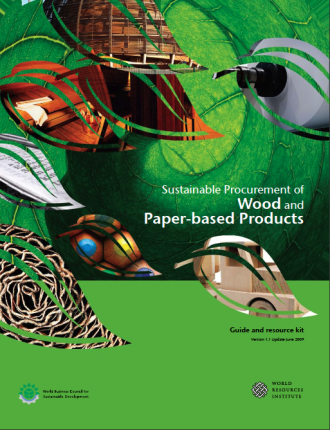
Forests are vitally important for the global environment, economy, and population. The forest sector employs 13.7 million workers and contributes to about 1 percent of the global GDP. Plus, an estimated 500 million people around the world directly depend on forests for their livelihoods.
But forests are also under threat. From 2000-2010, about 15 million hectares of the world’s forests were cleared, and a 2004 assessment estimated that 8-10 percent of the global wood trade is of illegal origin. In addition to deforestation, illegal logging can cause government revenue losses, poverty, unfair competition with legally sourced goods, unplanned and uncontrolled forest management, conflicts, and other illicit activities that can occur in instances where illegal logging’s proceeds are linked to organized crime and corruption.
But there are solutions. One way to improve forest management across the globe is for businesses, governments, and citizens to seek out and demand sustainably harvested wood and paper products.
Today, WRI and the World Business Council for Sustainable Development (WBCSD) released the third edition of a guide that helps businesses develop sustainable policies and seek out sustainably harvested wood and paper products. The updated guide, Sustainable Procurement of Wood and Paper-Based Products, is accompanied by a revamped website.
The Sustainable Procurement of Wood and Paper-Based Products Guide
The Sustainable Procurement of Wood and Paper-based Products guide helps businesses develop and implement policies to source wood and paper-based products sustainably by:
- Identifying and providing an overview of the 10 key issues to consider when purchasing wood and paper-based products;
- Outlining an assortment of tools, initiatives, and programs that can help inform and support the development and implementation of procurement policies and practices; and
- Explaining the maze of terms associated with procurement of wood and paper-based products.
What’s New About Version 3?
The updates to the guide and website were based on findings from a user survey conducted this year. Users identified legality, the ability to exercise more control over the supply chain, and social issues as the most pressing issues to address in our next guide. Accordingly, Version 3 provides the most up-to-date information on these issues, including:
- Latest developments on the legality of forest products, including the U.S. Lacey Act, the European Union Timber Regulation, and updated information about voluntary legality verification systems and trees protected by the Convention on International Trade of Endangered Species (CITES);
- Advances in technological and data-management systems to trace, control, and increase the transparency of forest product supply chains;
- An expanded overview of forest products’ social dimensions, including implications for local and indigenous communities (such as from timber harvesting operations and social conflicts); and
- Additional resources where users can find more detailed information or begin to develop and implement their own procurement policies.
We also revamped the guide’s companion website to allow users to access information faster and navigate the website with more ease. The site now includes simple guidance on how to use the procurement guide, easy-to-find sources of help, and better access to examples of how existing public and private procurement policies address legality.
With this edition and refreshed website, WRI and WBCSD continue our five-year-old partnership to support better corporate decision-making around forest product procurement. Moving forward, we’ll continue to disseminate and update the guide and companion website in the hopes of increasing the demand for sustainable wood and paper products.